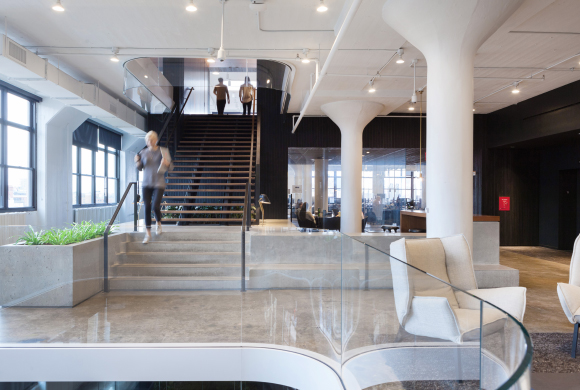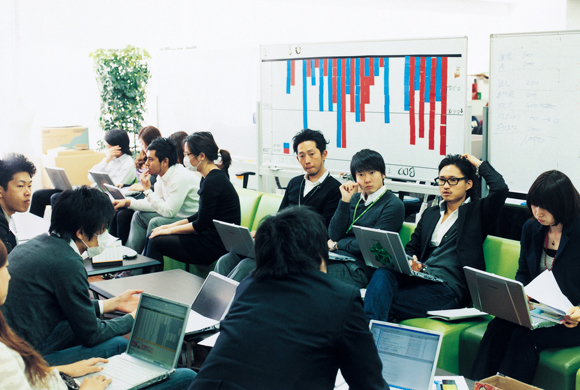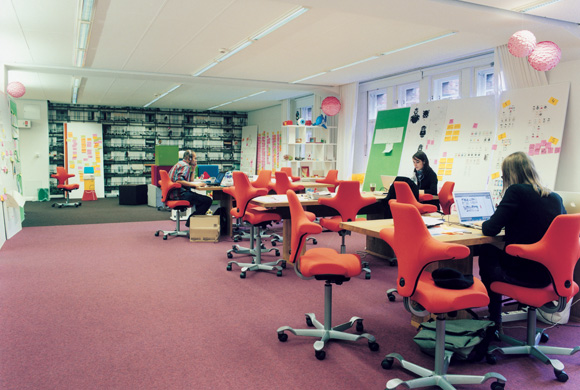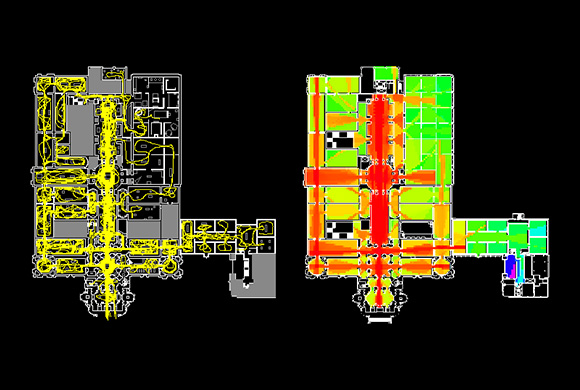Workplace
Nov. 2, 2015
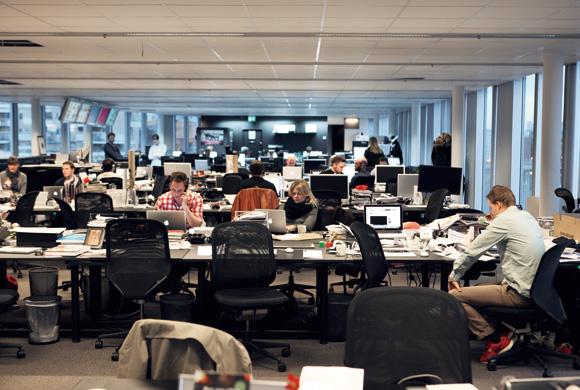
The creation of advertising based on active exchange outside the office and which appeal to human sensibilities
A company using creative techniques to lead the advertising industry
[DDB] Stockholm, Sweden
In the Stockholm section of the 2011 Gunn Report, The World’s Interactive Ad Agencies, DDB Stockholm stood at number one. Regardless of the traditional forms of advertising, the agency had gained attention for an art project-like approach transcending narrow categories. It created installations, experimental films and other works in its advertising. Looking around the world today, the market is overflowing with brands, and messages are being sent from those brands.
But what do consumers think about a brand that is only talking about itself—that is the way the DDB people were thinking. Like the old expression, “actions speak more eloquently than words,” advertising should not be just words but action as well. For example, instead of buying ad space in media, funds could be requested from a client, which would then be used to support youth sport groups—with that action partly announced in an advertisement. Fresh options, the company believes, are necessary in advertising.
Video editing room. They don’t outsource con- tent production, but have the skills to handle much of the work here. In the company kitchen. It can be used for things from all-com- pany meetings to photo shooting.
Desks on the same floor are simply lined up, making an environ- ment conducive to discussions. Staff often go out for a drink together after work.
To achieve ways of thinking that move beyond existing frameworks, the company is promoting informal networking. The fences around traditional job positions are being torn away, with desks arranged in an open area on one floor.
Strategists, creative staff, designers, programmers, planners—all the different organizations have been brought together so that everyone can discuss matters. Working together on the same floor, discussions can begin that are completely unrelated to job assignments.

Founded 1949
2009 Sales: US$2.022 billion
Employees: More than 14,000
Locations: 200 offices in 100 countries
http://ddb.se/
 Stairs like a piano keyboard were set at the exit of one of Stockholm’s subways. Sounds were emitted as people climb the stairs, and the message, “For good health, don’t use the escalator” was presented. This was not an commercial for the subway system, but for automaker Volkswagen.
Stairs like a piano keyboard were set at the exit of one of Stockholm’s subways. Sounds were emitted as people climb the stairs, and the message, “For good health, don’t use the escalator” was presented. This was not an commercial for the subway system, but for automaker Volkswagen.
 This was a recruitment campaign for the Swedish Army. By accessing a website, visi- tors could take an aptitude test. Many tradi- tional army recruiting commercials simply encourage the viewer to join up, but this one had the potential to invite participants by say- ing, “You are officer material!”
This was a recruitment campaign for the Swedish Army. By accessing a website, visi- tors could take an aptitude test. Many tradi- tional army recruiting commercials simply encourage the viewer to join up, but this one had the potential to invite participants by say- ing, “You are officer material!”
http://team.forsvarsmakten.se/english/
What a person is doing and what their strengths are can be searched using a smartphone app. Employee profiles are available on the Intranet, with all job information shared. The Friday Meeting is held each week in the kitchen, where, along with enjoying drinks and snacks, casual brainstorming is conducted, making it very easy to share ideas.
And, talking with employees, it’s clear that they firmly believe in this way of improving all projects. With flat, open relationships, they are clearly aimed at social creativity.
Working hours here are a little shorter than the Swedish standard of 40 hours per week—the official length at DDB is 35 hours per week. The working day is based on flextime between the hours of 9am and 4pm, meaning that work can be adjusted to many different lifestyles. In the evening, about half the employees work overtime.
More than 170 people work here now, but there is the still-familiar level that nearly everyone knows each other’s faces, and many of them head out together for a drink after work. The company also arranges for ski trips and other events. Many of the employees also share hobbies and interests through Facebook. They also network with consumers and average people at a private level, so they can better understand them and share their ideas.
As employees build up these contacts outside the company, they can better introduce their many personal connections and naturally increase their connections with others. In fact, they’ve found a very good balance between work and private lives here, which will be the source of new innovations for the company.
From WORKSIGHT 02(2012.6)
 Video editing room. They don’t outsource con- tent production, but have the skills to handle much of the work here.
Video editing room. They don’t outsource con- tent production, but have the skills to handle much of the work here.
 Some of the awards won by DDB Stockholm.
Some of the awards won by DDB Stockholm.






